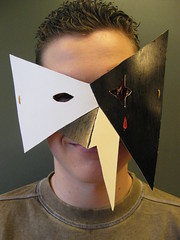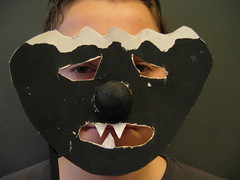The school's wall clock
Years ago I had a serious talk with a girl of my tutor group. Testing had set her I.Q. at 153. But she couldn't perform routine school tasks, say learning thirty French words for next day. I was probing into her past to find the reason for her revulsion and distrust. We got as far back as to early childhood and her first school experiences.
Early at primary school she had been told to come to the front of the class to say the multiplication table of two. She didn't get beyond twelve and was told off for it. When the class was exercising the table she hadn't paid attention at all because she had discovered that the answers were in front of her eyes, in the hour numbers of the school clock, she only had to skip the uneven numbers. However, the clock did not reach beyond twelve.
Talent
To me this anecdote epitomizes the conundrum school faces with gifted children. The educator who administered the rollicking might have inquired into the problem better and by doing so she could have detected a budding mathematician. That's what parents of gifted children ask the school to do. The precocious child should have been motivated to develop her inchoate understanding of numbers by building clocks with all kind of number systems in cardboard.
On the other hand, the teacher was right in lambasting the pupil. If her young student had practised the table of two in the way all the other kids complied with she certainly would have succeeded in mastering it.A school career
The little girl felt aggrieved. This and other experiences ushered in a troublesome school career. When I met her at the age of thirteen she was disobedient, petulant, a nuisance in the class room. Though her parents managed to get her in the top level of the Dutch school system she was completely unable to cope with the school system. Her parents blamed the school. She left our school for a very expensive private school where group size was limited to twelve students per class, quite different from our usually crowded class rooms. She managed to pass the national examinations and got entrance to a university where she fell by the wayside.
How to deal with underachievers
I have been grappling with the problem of underachieving prodigies in the school system all over my career as an educator. I've always been trying to solve the problem by offering these students tasks that appealed to them and challenged their aptitude. I asked my fellow teachers to do so. We implemented special projects for the gifted. Despite our efforts results were mostly meagre.
Especially learning foreign languages, which is very important in Dutch education, proves to be an almost impossible task for students who rely solely on their innate intelligence. Learning to read, write, and speak English, French and German within a couple of hours per week in a full classroom in just a few years even on a basic level is impossible without rote learning. Pupils must practise grammar in the class room. Students have to cram vocabulary at home.
Arguably gifted students may learn a foreign language easily while being immersed in it, but we cannot immerse students in three foreign languages, can we? We lack the environment with native speakers, we lack the time. My school is exemplary in the region with offering gifted students a bilingual education in which they are taught in English for half of the subjects, half of the school week. But even in this situation of immersion students who memorize their personal idiom files by rote learning fare better than students who just wait and see.

Learning is not just fun
I see things differently now. Gifted children have a wonderful brain, an excellent working memory. That brain has to be challenged by intriguing tasks. This makes kids happy, it motivates them to work, to go to school for that matter. But before all we must train them to store knowledge in their long-term memory. They must learn to memorize. (cf. D.T. Willingham) When we fail to discipline them in doing the tedious work of rote learning they will founder at some stage in their career when deep knowledge is required.
Returning to the story I started with, this girl should have been given the task to build various clocks in all kind of number systems in cardboard. Next to that she would have benefited a lot from learning the multiplication tables by heart just like the other kids.
References:
Daniel T. Willingham, Why Don't Students Like School, acognitive scientist answers questions about how the mind works and what it means for the classroom, Jossey-Bass, San Francisco, 2009
Images:
Twelve hour clock at images.netshops.com
18 hour clock at Crowbert's photostream Flickr.com
Life time clock at techna.bob.com
Radians-wall-clock at nerdapproved.com








